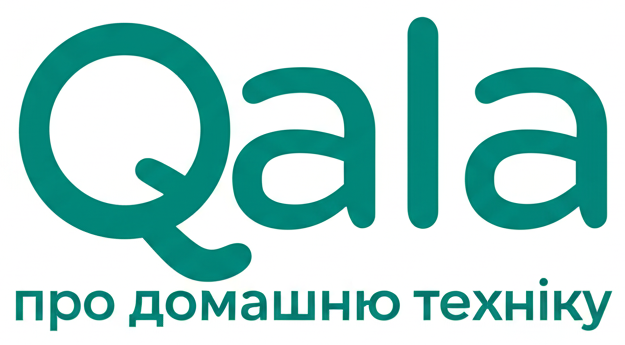Холодильник — єдиний побутовий прилад, який працює цілодобово протягом усього року. Скільки споживає холодильник електроенергії, напряму впливає на сімейний бюджет, адже цей пристрій може складати до 30% від загального споживання електрики в домі.
Знання точних цифр споживання допоможе зробити правильний вибір при покупці нової моделі та оптимізувати витрати на електроенергію. Сучасні енергоефективні холодильники можуть споживати у 2-3 рази менше електрики порівняно зі старими моделями, що дає істотну економію протягом року.
Розуміння факторів, які впливають на енергоспоживання, дозволить не лише обрати оптимальну модель, але й правильно її експлуатувати для мінімізації витрат. Стаття буде корисна власникам як інверторних, так і звичайних холодильників.
Від чого залежить споживання енергії
Об’єм та тип холодильника
Більші холодильники логічно споживають більше електроенергії для охолодження збільшеного внутрішнього простору. Однокамерні моделі без морозильної камери економніші за двокамерні, а компактні моделі до 150 літрів споживають найменше.
Холодильники Side-by-Side та французькі моделі з нижньою морозилкою зазвичай мають більше споживання через збільшений об’єм та додаткові функції.
Клас енергоефективності
Найважливіший параметр для визначення споживання — клас енергоефективності. Сучасні моделі мають маркування від A до G, де A — найекономніший клас. Потужність холодильника класу A може бути у 2-3 рази нижчою за клас C при однаковому об’ємі.
Технологічні особливості
Інверторний компресор значно зменшує споживання електроенергії завдяки плавному регулюванню потужності замість повного вимкнення-увімкнення. Система No Frost споживає трохи більше енергії через роботу вентиляторів, але економить час на розморожування.
LED-освітлення споживає в 10 разів менше електрики порівняно зі звичайними лампами розжарювання.
Зовнішні фактори
Температура в приміщенні критично впливає на споживання холодильника. При температурі +25°C споживання може зрости на 30-40% порівняно з +18°C. Частота відкривання дверцят, кількість продуктів та їхня температура також впливають на енергоспоживання.

Пояснення енергоефективності
Сучасне маркування
З 2021 року діє нова система маркування від A до G, де A — найекономніший клас. Стара система з класами A+++, A++, A+ поступово виходить з обігу, але ще зустрічається на деяких моделях.
Річне споживання на етикетці
На енергетичній етикетці кожного холодильника вказано річне споживання у кВт·год. Ця цифра розрахована для стандартних умов експлуатації та дає найточніше уявлення про реальні витрати електроенергії.
Клас A споживає зазвичай 150-250 кВт·год на рік, клас B — 250-300 кВт·год, клас C — 300-400 кВт·год. Але насправді, кількість спожитої електроенергії залежить від конкретної моделі.
Скільки споживає холодильник у цифрах
| Об’єм холодильника | Клас A | Клас B | Клас C |
|---|---|---|---|
| До 200 л | 120-180 кВт·год/рік | 180-220 кВт·год/рік | 220-280 кВт·год/рік |
| 200-300 л | 180-250 кВт·год/рік | 250-300 кВт·год/рік | 300-350 кВт·год/рік |
| 300-400 л | 250-320 кВт·год/рік | 320-380 кВт·год/рік | 380-450 кВт·год/рік |
| Понад 400 л | 320-400 кВт·год/рік | 400-480 кВт·год/рік | 480-600 кВт·год/рік |
Скільки Ват споживає холодильник у режимі роботи компресора – від 100 до 600 Вт залежно від моделі. Пікова потужність холодильника може досягати 500-800 Вт під час запуску компресора.
В Україні вартість 1 кВт/година для населення складає 4,32 грн. Тобто холодильник потужністю 120 кВт/год витрачає 518,40 грн на рік. Потужність 320 кВт/год коштує 1382,4 грн. А за холодильник з витратою 600 кВт/годин на рік заплатите 2592 грн за електроенергію.
Скільки споживає холодильник в годину розрахувати важко, тому що компресор не працює постійно. А от приблизно порахувати скільки електроенергії споживає холодильник у місць можливо: розділіть споживання вашого холодильника за рік на 12 місяців.
Щоб дізнатись скільки кВт споживає холодильник саме вашої моделі, подивіться на етикетку (може бути на стінці всередині) або на сайті виробника. Втім, варто пам’ятати, що це лише приблизне значення. Фактичне споживання електроенергії залежить від багатьох факторів.
Як зменшити споживання холодильника
Правильне розміщення
Встановлюйте холодильник подалі від джерел тепла — плити, батарей опалення, попадання прямих сонячних променів. Відстань до стіни має становити мінімум 5-10 см для нормальної циркуляції повітря навколо конденсатора.
Оптимальна експлуатація
Не тримайте дверцята відкритими довше за необхідне та не ставте гарячі страви в холодильник. Дайте їм охолонути до кімнатної температури. Регулярно перевіряйте щільність прилягання дверцят — пошкоджений ущільнювач може збільшити споживання на 20-30%.
Технічне обслуговування
Очищуйте конденсатор (решітку ззаду) від пилу раз на 3-6 місяців. Забруднений конденсатор змушує компресор працювати інтенсивніше, збільшуючи споживання електроенергії.
Для моделей без No Frost регулярно розморожуйте морозильну камеру. Товстий шар льоду діє як теплоізолятор, змушуючи компресор працювати довше.
Налаштування температури
Встановлюйте оптимальну температуру: +4°C для холодильної камери та -18°C для морозильної. Кожен градус нижче збільшує кількість спожитої енергії на 5-8%.

Коли варто замінити старий холодильник
Економічна доцільність
Холодильники старше 10-15 років зазвичай споживають у 2-3 рази більше електроенергії порівняно з сучасними моделями. Якщо ваш старий холодильник споживає понад 400-500 кВт·год на рік, заміна на нову енергоефективну модель окупиться за 3-5 років.
При тарифі 4 гривні за кВт·год економія може складати 800-1200 гривень щороку при переході з класу C на клас A.
Додаткові переваги
Сучасні моделі працюють значно тихіше завдяки інверторним компресорам, мають кращі системи охолодження та додаткові функції зручності. Техніка Бош, ЛГ та інші провідні бренди пропонують розширені гарантії та надійну сервісну підтримку.
Висновок
Холодильник справді один з найбільш енергоактивних приладів у домі через постійну роботу 365 днів на рік. Правильний вибір класу енергоефективності може заощадити сотні гривень щорічно на оплаті електроенергії.
При виборі нової моделі орієнтуйтеся на етикетку енергоефективності та річне споживання у кВт·год. Інвестиції в енергоефективний холодильник класу A окупляться протягом кількох років шляхом зменшених витрат на електрику.
Іноді вигідніше купити новий економний холодильник, ніж продовжувати платити високі рахунки за електроенергію через експлуатацію старої енергозатратної моделі. Сучасні технології дозволяють отримати більший об’єм, кращу функціональність та менше споживання одночасно.
